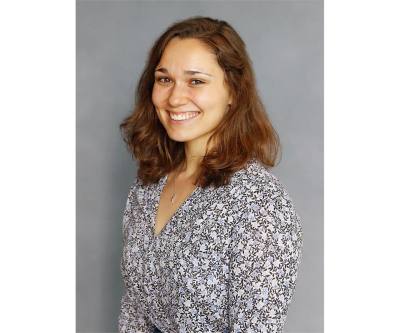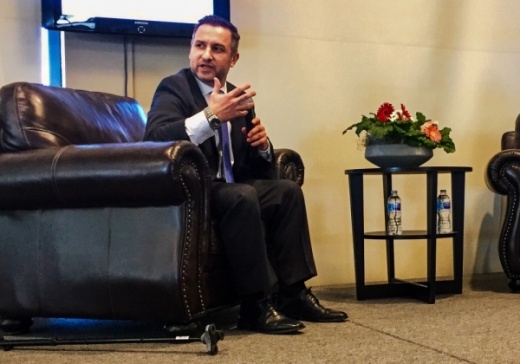"I know from my faith life can change on a dime," Morgan said, later adding: "But I know who’s in control. The man upstairs, for me, is who I believe in and he has this under control. ... If it’s his desire, I’ll be back 100%.”
The public response following his health complications, Morgan said, played a significant factor into his re-election campaign for mayor. He added the outpouring of thoughts, prayers and good wishes from community members—supporters and critics alike—reaffirmed his faith in the city and the residents who reside there.
"We’re better as one, and even though you see all this craziness going on in [Washington,] D.C. and in the state, Round Rock has kind of weathered that,” he said.
E-commerce sales tax rule
At the state level, recent legislation proposed by the state comptroller's office could put the economic future of the city in limbo, with a proposal on the table to relocate e-commerce sales tax revenue from the place of origin to the buyer's location. Morgan said Texas has always been an origin-based state, and the potential rule change could lead to a $20 million net annual loss to the city's general fund revenue.
The city's general fund budget is approximately $126 million a year, and the potential sales tax loss would likely result in dramatic cuts to the city's general fund expenditures—roads, water, parks and staff—as well as a $0.0133 property tax increase to offset the loss from sales tax revenues. However, the city cannot raise the city's tax rate by the needed amount, Morgan said. Due to Senate Bill 2, the maximum a city can raise its property tax revenue year over year is 3.5%, which city staff said means the property tax rate can only increase by $0.002.
“This council will have to start making some tough decisions," Morgan said, adding city staff has been working closely with the comptroller's office, local businesses and state representatives to find a solution that does not adversely affect cities' governing capabilities.
Road work on the horizon
To keep pace with the city's continuous growth, Morgan also addressed transportation infrastructure improvements underway and on the horizon for Round Rock. The city's 2040 transportation plan has a sticker price of approximately $1.2 billion earmarked for projects throughout the city, and he added the No. 1 complaint from residents revolves around traffic and roadway congestion.
Morgan said staff has issued the first installment of what will be a total of $240 million of certificates of obligation bonds for its five-year road improvements effort, with six projects expected to break ground in 2020. City staff is also working with the Capital Area Metropolitan Planning Organization, the Texas Department of Transportation and other regional partners to help coordinate funding partnerships.
RM 620, a highly prioritized transportation project, is also expected to begin construction next month. Morgan added as the city's overall population continues to grow, roadway improvement efforts will continually be aggressive to ensure ease of mobility.
"The problem is, people keep coming to Round Rock," he said, laughing.
Downtown revitalization efforts
While transportation has been a central focus for city leadership, Morgan said so, too, has been establishing a sense of community through Round Rock's downtown corridor. Millions of dollars have been invested into downtown infrastructure, Morgan said, with prioritization of mixed uses: entertainment, commercial, office and residential, as well as city-owned infrastructure, such as its planned library. It has been an effort on council's and city staff's behalf, Morgan said, that will lay the groundwork for Round Rock's future.
“I would argue that’s probably the biggest thing that this council will have a legacy, on because we’re planting the seeds," Morgan said. "We won’t be around for some of the things coming in, but we really have some nice opportunities.”
Future endeavors
As the city looks toward the remainder of 2020 and beyond, Morgan said that Round Rock has and continues to establish itself as a community that offers a "live, work, play" environment that continues to attract new residents.
Morgan cited the achievements of Round Rock ISD Superintendent Steve Flores for guiding the district to continual academic success, a low property tax rate for residents and incentives to help attract new businesses, and an expansion of chamber efforts to attract a larger and more diverse workforce, including added apprenticeships and certification programs with RRISD and Austin Community College. But the largest draw for Round Rock, Morgan concluded with, are the community members who help make the city a place people look to call home.
"We live in an awesome place, and I wouldn't trade it for anywhere else—I wouldn't trade the people for anyone else," Morgan said.
Editor's note: John Garrett, the CEO of Community Impact Newspaper, moderated the discussion with Morgan.





